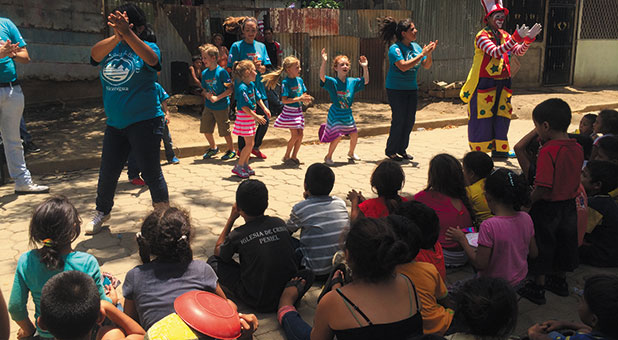Despite more than 2,700 missionaries sent from the United States at the time, the Assemblies of God never had anyone in a single Eastern European state until a couple’s then-6-year-old son came home from a Boys and Girls Missionary Challenge (BGMC) meeting with exciting news.
“I just felt this tugging at my heart, and I heard a voice inside say, ‘That’s it; that’s where you’re going,’ ” the young boy told them.
“If it weren’t for BGMC highlighting this country in its curriculum, we might not be here today,” says the missionary, whose name can’t be disclosed because of the sensitive location in which they now work. “God spoke to us through the words of a child.”
Marking its 65th anniversary this year, BGMC is the AG’s missions education program for children 12 and under. And since its launch in October 1949, it continues to instill a missionary vision in children around the country.
In fact, Mark Entzminger, senior director of children’s ministries, thinks this initiative deserves credit for the Pentecostal group’s status as one of the few denominations still expanding (3.1 million U.S. members and almost 68 million in other nations.)
“I would tie our worldwide growth to our forefathers ensuring that taking the gospel to the ends of the earth was part of our [children’s] lives throughout their lives,” Entzminger says.
Children and parents contribute $6 million annually to missions through Buddy Barrels—named for the BGMC mascot—and other offerings. When they mature into teens, many continue in the AG’s Speed the Light program, where offerings total $9 million a year.
The teen program includes Ambassadors in Missions (AIM), which last year dispatched 1,865 students on short-term mission trips. This summer AIM led trips to Bogota, Colombia, and Vienna, Austria, with its current mission in Columbus, Ohio, wrapping up Aug. 1.
Entzminger says the most inspiring element of BGMC is how its teaching helps children recognize material blessings aren’t for buying things to amuse themselves, but instead to help spread the gospel and bless less-fortunate peoples.
“In some situations people need to have their needs met before they can hear the gospel,” he says. “It’s about meeting felt needs and spiritual needs.”
—Ken Walker














































